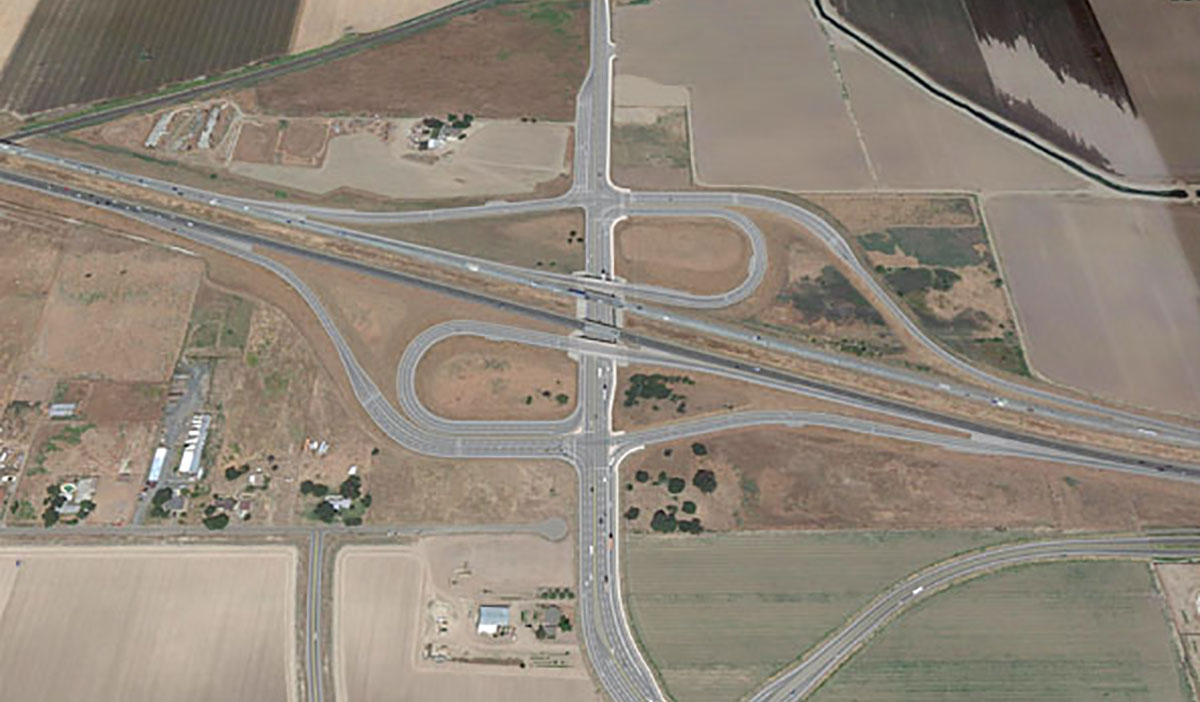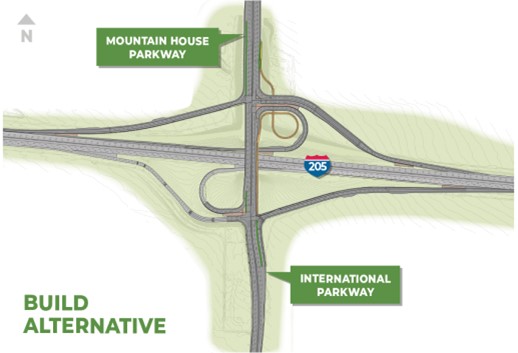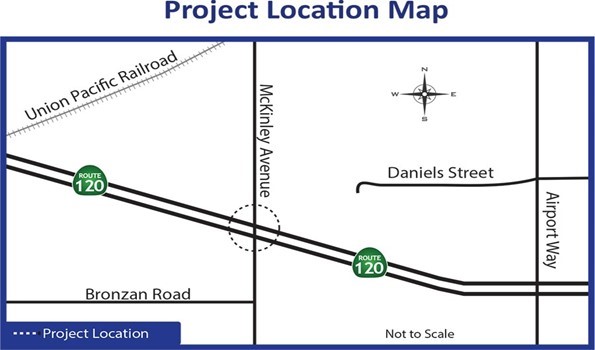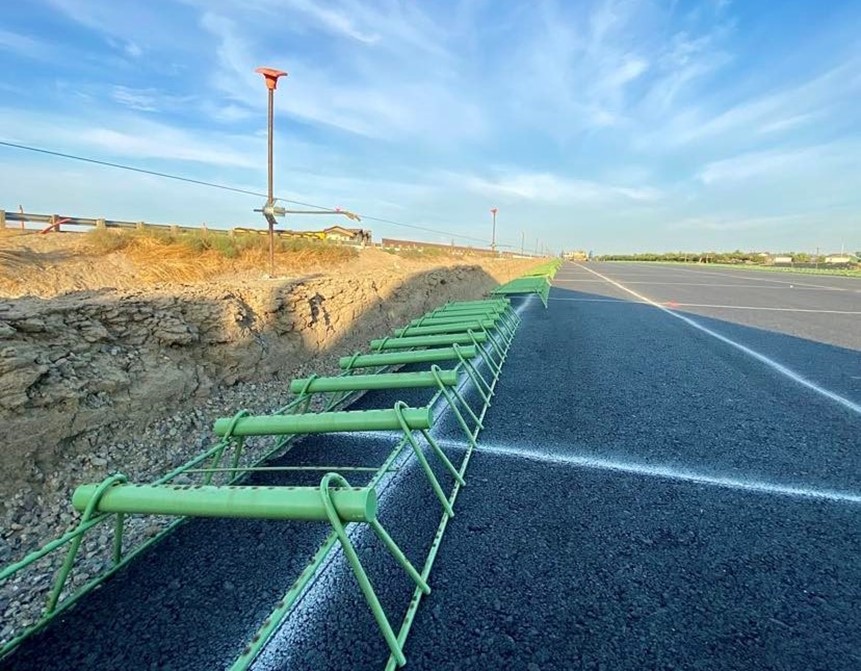A big section of Manteca, including the grounds of the Great Wolf Lodge, is about to become a lot more accessible thanks to the current State Route 120 / McKinley Avenue Interchange Project. The new interchange will help relieve congestion on local roads and accommodate a forecasted increase in traffic as the Great Wolf Lodge/Family Entertainment Zone and the adjacent residential areas continue to develop.
The SR 120 / McKinley Avenue Interchange will also help accommodate the planned growth that the City of Manteca, San Joaquin County, and the San Joaquin County Council of Governments have envisioned in their planning documents. Residential developments have already been permitted on the north and south sides of SR 120.
Accessed via I-5 from the west and SR 99 from the east, SR 120 is Manteca’s main crosstown thoroughfare, connecting the two primary north-south highways of California’s Central Valley. Along with the north-south traffic coming from I-5 and SR 99, traffic flows from eastbound I-580 from the Bay Area onto I-205, which connects to I-5 just south of SR 120.
The design of the State Route 120 / McKinley Avenue Interchange Project is a partial cloverleaf, a Type L-9, with on- and off-ramps, two new ramp bridges, and auxiliary lanes on SR 120.
In the project design phase, traffic patterns and volumes were evaluated to determine if the project’s on-ramps will be able to be constructed in phases, with the primary focus on the feasibility of constructing the interior loop on-ramps in a later stage.
DeSilva Gates is the General Contractor on the project, with Vanguard Construction working as a subcontractor. American Highway provided the dowel and tie-bar baskets, as well as loose dowels and tie bars.
DeSilva Gates performed the grading, rocking, and HMA paving. The HMA pavement was placed on the approaches to the new on- and off-ramps, along with McKinley Avenue.
Vanguard Construction performed the jointed plain concrete pavement (JPCP) work on the ramps, which are one-foot thick, atop a three-inch HMA base. The total volume of JPCP is 9,800 cubic yards.
The construction cost for Phase 1 of this project, without the interior loop on-ramps, is $30.8 million. Project funding came from federal funds, regional transportation impact fees, local redevelopment agency/successor agency funds, local development fees, State of California Transportation Improvement Plan funds, and San Joaquin Measure K funds.
Phase 1 work is currently taking place, with a projected completion in spring 2024.






